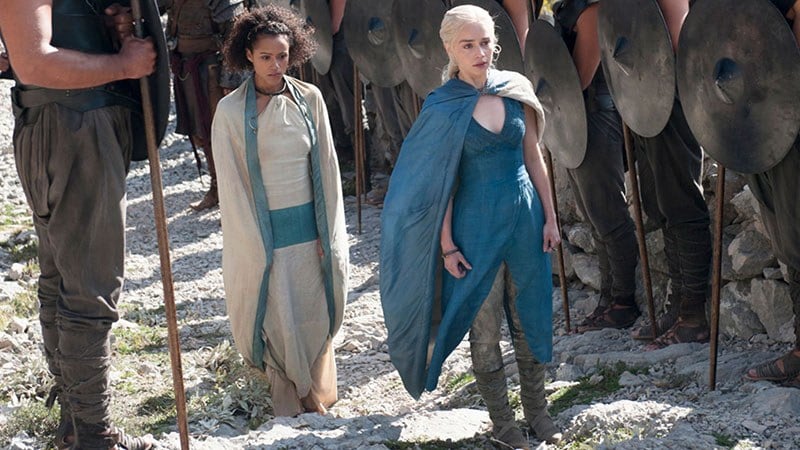Tech
Let's Get Complicated: Technology's Impact on Television Storytelling
There’s no question about it—technology is changing how we consume and create media. The advent of DVRs, smart TVs, and streaming services has led to more opportunities for entertainment writers to infuse plotlines with a healthy dose of complexity. In the last few years, there’s been a steady rise in serialized programming featuring plots that unfold over the course of an entire season, versus episodic programs that feature a self-contained plot arc executed within a single episode. Recently, shows like Breaking Bad, House of Cards, Orange is the New Black, and Game of Thrones have all taken a decidedly serialized approach to storytelling, and viewers are responding by immersing themselves in the extended worlds of these programs like never before.
“In terms of creating larger story worlds and serialized plot lines, I think it ties into the idea of transmedia storytelling quite a bit,” says Julie Anne Wright, a Course Director in Full Sail’s Creative Writing for Entertainment program. “Now, it’s not just about downloading and binge watching an entire season of The Walking Dead, it’s about doing that, plus playing all of the games, plus reading the comics. So it becomes incredibly important that writers be able to tell longer form stories that can carry over into other mediums as well.”
Having the ability to binge watch shows affects more than just the way plot lines are constructed. It also creates space for writers to include more widely nuanced characters, antiheroes, and individuals whose aims might not become clear until well into a season. Because of the gradual way that plot points are revealed, viewers are willing to invest more time in these types of characters when they’re presented in the context of a serialized story.
“Often, it’s unclear whether these characters are good or bad; you can’t necessarily pin them down. If you were watching these shows live, you might not have the patience to come back to these characters week after week once you’ve had a break from them. But if you get the opportunity to watch three or four episodes in one sitting, you’re kind of hooked in a way that network television doesn’t offer,” says Julie.
Because streaming services like Netflix and Amazon Prime operate separate from networks, they also tend to feature more diverse content than traditional network programming. This in turn attracts a more diverse audience, which boosts viewership and helps to create a cultural dialogue around a show. As a result, says Julie, the success of streaming content has begun to inform network programming.
“For instance, Orange is the New Black is a show set inside a women’s prison that deals with female relationships in a really open and honest way. We wouldn’t have seen that on network TV five years ago. But because we’re seeing it on Netflix, the public is becoming more receptive to those types of stories,” she says. “So now we’re seeing a slew of shows that deal with hot button issues. That’s partially a response by the networks to what we’re seeing from content providers like Netflix, and also a response to people having more freedom to seek out the things they want to watch.”
While it’s important for students who are interested in writing for entertainment to pay attention to these shifts in viewing trends, it’s also important to consider how technology might affect programming in the future. In a world where virtually anyone can create content through various web channels, viewers are faced with an overabundance of programming options. As a result, it might harder for some projects or shows to get the audiences they need to survive.
“In terms of advertising and revenue, we’re seeing what people are responding to, and that creates it’s own hierarchy. I think we’ll see a lot more transmedia properties like The Walking Dead and superhero franchises, because they can market tie-ins like comics and games, ” says Julie. More than ever, it’s crucial for aspiring entertainment writers to present themselves as well-rounded content creators.
“For our students, if they think of themselves as being versatile enough to jump into any of those roles, then it’ll be easier for them in the market. They won’t have to pigeonhole themselves as just a screenwriter or someone who only does television. They can say, ‘I know how to write for all these different formats, and I can adapt.’”
Whether you’re ready to apply or just want to learn more about Full Sail University, our Admissions Representatives are here to help. Call us or request more information.
Keep Exploring
- Computer Animation
- FSOA
- Behind the Scenes Tour
- Tuition
- Students & Faculty
- Alumni Updates
- Game Development
- Audio Production
- Show Production
- Facilities
- Music Business
- Industry Research
- International
- Film
- What's Your Job?
- Industry Partners
- Educators
- Creative Writing
- Warped Tour
- Simulation & Visualization
- Housing

